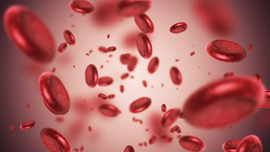Have You Been Diagnosed With Fanconi Anemia?


Fanconi anemia is a rare genetic disorder that mostly affects children and often leads to bone marrow failure. Researchers at the National Institutes of Health are investigating a new drug to improve blood counts in individuals diagnosed with Fanconi anemia. Eltrombopag is an oral drug that mimics a special protein that causes the body to make more platelets. Currently eltrombopag is used to treat low platelet counts in patients with hepatitis C and chronic immune thrombocytopenic purpura (ITP). Researchers are evaluating if this new drug will improve blood cell counts in individuals diagnosed with Fanconi anemia.
Eligible participants:
- At least 4 years old.
- Have been diagnosed with Fanconi anemia by genetic testing.
- Have declined or not responded to treatment with danazol or oxymetholone.
- Weight more than 12 kg (26 lbs)
What is involved?
- A review of medical records, and physical exam to determine eligibility for the study.
- Participating in the study may last up to three-and-a-half years.
- Participants with improvement in their blood cell counts at six months will have the option to continue taking the medication for an additional three years.
- You may receive blood and or platelet transfusions.
- Tests, medication, and procedures conducted at the NIH Clinical Center are at no cost to you.
- Compensation for travel may be provided.
Location: The NIH Clinical Center is America's research hospital is located in Bethesda, MD, on the Metro red line (Medical Center stop).
For more information, call:
Office of Patient Recruitment
1-800-411-1222
TTY: 1-866-411-1010
Se habla español
Or go online:
https://go.usa.gov/xE5Z8
Refer to study #17-H-0121
Department of Health and Human Services
National Institutes of Health Clinical Center
National Heart, Lung, and Blood Institute
